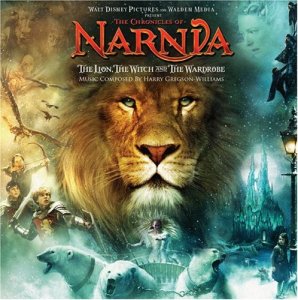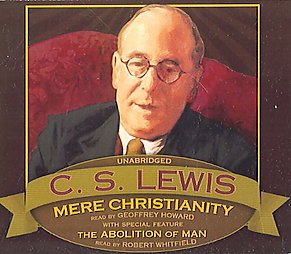 Regular readers of this blog know that I’ve been concentrating a lot lately on C. S. Lewis and that I hope to write a book about his influence on Americans. The survey I conducted with the help of the Wade Center at Wheaton College is now complete. In all, eighty-seven Americans responded to that survey, giving me some indication of just why they consider Lewis important to their lives.
Regular readers of this blog know that I’ve been concentrating a lot lately on C. S. Lewis and that I hope to write a book about his influence on Americans. The survey I conducted with the help of the Wade Center at Wheaton College is now complete. In all, eighty-seven Americans responded to that survey, giving me some indication of just why they consider Lewis important to their lives.
I’ve finished analyzing the data, have written a complete report on the data, and will be submitting it to the Wade Center in hopes that it will be published in their journal in the near future. What did I discover? I’ll take the opportunity today to give you an overview, along with some poignant testimonies.
 First, I found out that many of the respondents first learned about Lewis as a child, reading The Chronicles of Narnia series. Quite often, it was the parents who served as the instruments of God to ensure their children received this blessing. For those who didn’t have that opportunity as children, quite a few had friends who recommended they read Lewis for personal benefit. I was also surprised how many just happened upon Lewis by “chance” in a bookstore, and started their journey with him in that way.
First, I found out that many of the respondents first learned about Lewis as a child, reading The Chronicles of Narnia series. Quite often, it was the parents who served as the instruments of God to ensure their children received this blessing. For those who didn’t have that opportunity as children, quite a few had friends who recommended they read Lewis for personal benefit. I was also surprised how many just happened upon Lewis by “chance” in a bookstore, and started their journey with him in that way.
 For those who didn’t begin with Narnia, the two books they picked up on at the outset were usually The Screwtape Letters and Mere Christianity. When I asked which of Lewis’s works have had the greatest impact on their thinking and/or their lives overall, Mere Christianity took first place, followed by Narnia, and then the Space Trilogy series (Out of the Silent Planet, Perelandra, and That Hideous Strength). Rounding out the top five were The Screwtape Letters and The Great Divorce.
For those who didn’t begin with Narnia, the two books they picked up on at the outset were usually The Screwtape Letters and Mere Christianity. When I asked which of Lewis’s works have had the greatest impact on their thinking and/or their lives overall, Mere Christianity took first place, followed by Narnia, and then the Space Trilogy series (Out of the Silent Planet, Perelandra, and That Hideous Strength). Rounding out the top five were The Screwtape Letters and The Great Divorce.
 The survey also shed light on the interesting fact that many of these respondents were involved, one way or another, with either some type of C. S. Lewis society or a Facebook page focusing on him. They were also opinionated on the attempts to put Lewis before the public eye in movies, whether the Shadowlands film with Anthony Hopkins and Debra Winger or the three Narnia episodes. While most applauded the attempts, there were many critical comments on how loosely, at times, they followed Lewis’s original writing. In the case of Shadowlands, it was obvious that most felt the movie either downplayed or misrepresented Lewis’s Christianity and didn’t really capture his character.
The survey also shed light on the interesting fact that many of these respondents were involved, one way or another, with either some type of C. S. Lewis society or a Facebook page focusing on him. They were also opinionated on the attempts to put Lewis before the public eye in movies, whether the Shadowlands film with Anthony Hopkins and Debra Winger or the three Narnia episodes. While most applauded the attempts, there were many critical comments on how loosely, at times, they followed Lewis’s original writing. In the case of Shadowlands, it was obvious that most felt the movie either downplayed or misrepresented Lewis’s Christianity and didn’t really capture his character.
The survey ended with an invitation for respondents to say anything else they felt was significant about their C. S. Lewis experience. Here are a few of the best comments I received. Often, respondents wrote of their college days:
When I was an arrogant college student who believed only weak and/or stupid people believed in Christ, Lewis showed me beyond question that faith could make sense even to an intellectual. He awakened my spiritual imagination with his fiction and persuaded my reason with his nonfiction. He also gave me a grounding in traditional Christianity that facilitated my later conversion to Orthodoxy.
In one case, Lewis was the conduit who brought a woman back to faith:
When I walked away from my Christian faith during my twenties and early thirties, Lewis was one of the few Christian authors I still trusted and could stand to read. I was grieving, angry, and depressed, and when I reread The Chronicles of Narnia, the hope that shone through them was almost painful. Emotionally, it was as though a frozen and numb part of me began to regain feeling. Some years later, a passage from The Screwtape Letters was instrumental in helping me realize that I’d been angry at the church when, in fact, the church had been my truest friends and best support through very dark days.
I also appreciated the comment that did the best job of summarizing why Lewis is so influential even today:
C. S. Lewis manages to express in many unique and wonderful ways ideas about Christianity that are difficult to describe. Narnia tells of a lion whom you fear, but is good—we should fear God, but love God. Screwtape shows how devious and unrelenting (even in the face of conversion of the subject) Satan can be in the temptations of a person/Christian. In Mere Christianity, Surprised by Joy, “The Weight of Glory,†etc., Lewis expresses truths about Christianity in practical and meaningful ways that are easy to understand and remember. I love the variety of his writings.
Those are simply highlights. If this is published at some point, I’ll let you know, so you can read the entire analysis. And of course, if my book dream comes true, I’ll be more than happy to let you know about that.
